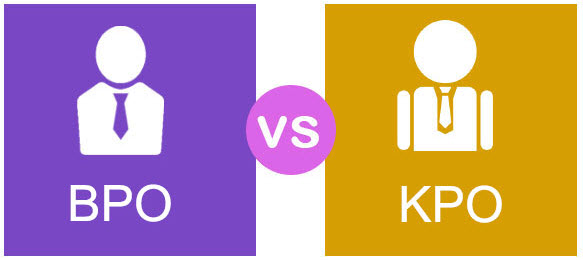What is KPO Job?

posted:4 years agobyAwatef Hamdiin Graduates
Sometimes, when you are looking for a job that suits your advanced qualifications, you get recommendations like, why don’t you apply for KPO companies? So what is KPO.? Is it good or bad? This is what Fratres will enveil for you. So keep reading.
What Is KPO?

KPO stands for Knowledge process outsourcing (KPO). It is a type of outsourcing information-related business activities. This field is related to people involved in outsourcing work to other companies or organizations that pursue offshore activities.
Who Can Get Access to KPO Jobs?
Individuals who have obtained advanced degrees and expertise in a specialized field can apply. Some companies cannot afford the expenses of experts in their local home country. For this reason, they look for skilled professionals elsewhere, in other countries with lower currencies. Therefore, KPO is an economic strategy for small budget companies to get a highly-professional work done, with fewer costs. Take a look at How to Find Jobs in Mumbai?
How Does Knowledge Process Outsourcing (KPO) Work?
In general, KPO requires a set of arrangements, in which experts from another country provide high-level tasks, with less expensive expenses. There is advanced planning for this project. Company owners always target geographical areas that are known for an excellent academic system with a cheap currency. This strategy enables them to make money, using nondemanding experts.
Is KPO Similar to BPO?

Despite sounding similar to the BPO industry, there are many differences between these processes.
- BPO is Business Process Outsourcing, while KPO is knowledge Process Outsourcing.
- PBP can be related to a third-party company to save expenses, which is technically similar to KPO. However, the latter is more concerned with analytical procedures rather than business projects.
- Companies adopting KPO are usually recruiting highly educated professionals. BPO, on the other hand, are hiring 12th-grade clerks, blue-collar workers, and call center agents.
- The jobs involved in BPO are usually customer service and data entry jobs. Whereas, KPO has more comprehensive services such as financial consulting, research and development, investment, and business operations.
- KPO employs experts, enabling employers to save the cost of training, as applicants are already skilled. The services that this sector offers are varied. They can be related to finance, technical analysis, and medically-related research. These fields require overqualified people. You may also read What is Meant by BPO Jobs in India?
Advantages of KPO:
This procedure offers many benefits for both participants.
First, companies using KPO are either a small budget firm or have a shortage of skilled experts. That’s why; they resort to KPO to allocate lower wages for highly-skilled professionals.
Second, it can be for legal purposes; some countries cannot afford raw materials for their project, as it can be illegal in their home countries. Therefore, they choose a country where outsourcing this knowledge is possible there. For example, weed is banned in many countries. Investing this material in other countries, allowing manufacturing and trading this plant can be lucrative. Therefore, companies use KPO to proceed with illegal projects elsewhere in countries where the same plan is legal.
Moreover, KPO is a way to launch new technologies quickly. For example, establishing a new brand in smartphones, PC, or tablets can take a slow process in certain countries due to the expensive cost of this project. Therefore, companies seek to provide this technology relying on foreign expertise to improve the quality of this project.
KPO can be a good alternative for expensive consulting and can provide a better service for low budget companies.
KPO Job Profile:
What are the requirements for entering this field?
Companies seek less expensive costs for outsourcing knowledge; they seek applicants who reside in other countries with a different currency.
Employers look for experts that can be paid lesser than in-home professionals. Therefore, they build an official website targeting these talents.
These companies advertise for their urge for professionals by listing the requirements and the salaries that they can offer.
KPO Job Profiles May Include:
- Managerial skills
- Computer knowledge
- Pharmaceutical or medical knowledge
- Experience in similar fields
- Fluency in the English language
- In-depth knowledge in the target field
Adding to these general requirements, employers can test and interview candidates to establish more arrangements concerning their activities. Salaries in KPO jobs depend on the company’s operations.
As KPO is needed to alternate expensive costs in a particular field, it is still associated with some disadvantages. KPO can take advantage of skilled experts and worsen the economic system of the hosting country, as experts will turn to that foreign company, instead of public ones.
Moreover, there is a risk of leaking KPO information to competitor companies, as KPO employers have less control of its offshore employees.
There is also another risk of loss due to following the wrong strategies. It can also be due to language barriers or ineffective management and coordination between KPO employers and foreign professionals.
To sum up the whole, KPO and BPO have a similar interest in seeking cost-effective operations elsewhere. In case of absence or shortage of talented professionals, KPO companies resort to foreign experts to outsource knowledge for high-quality service.

